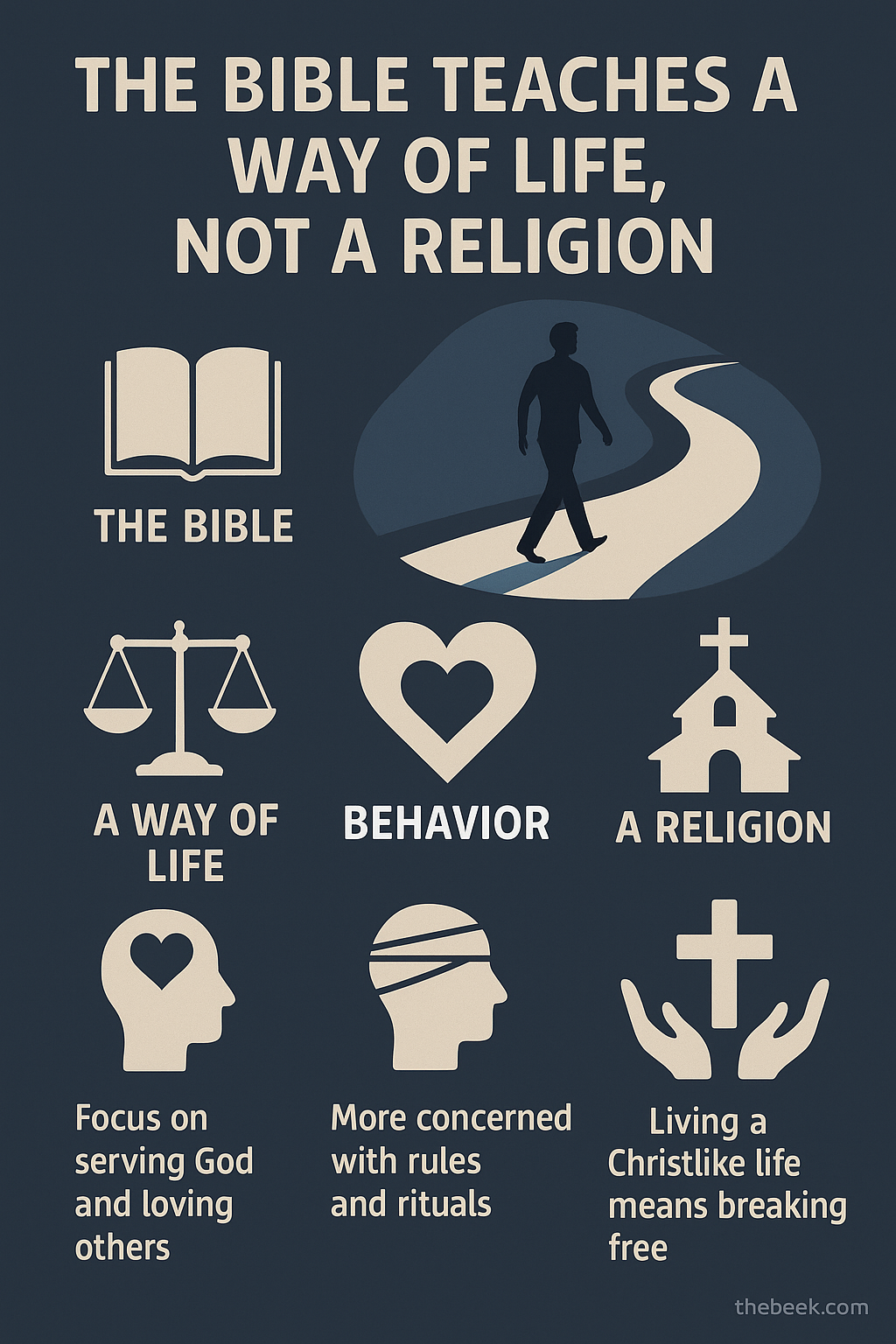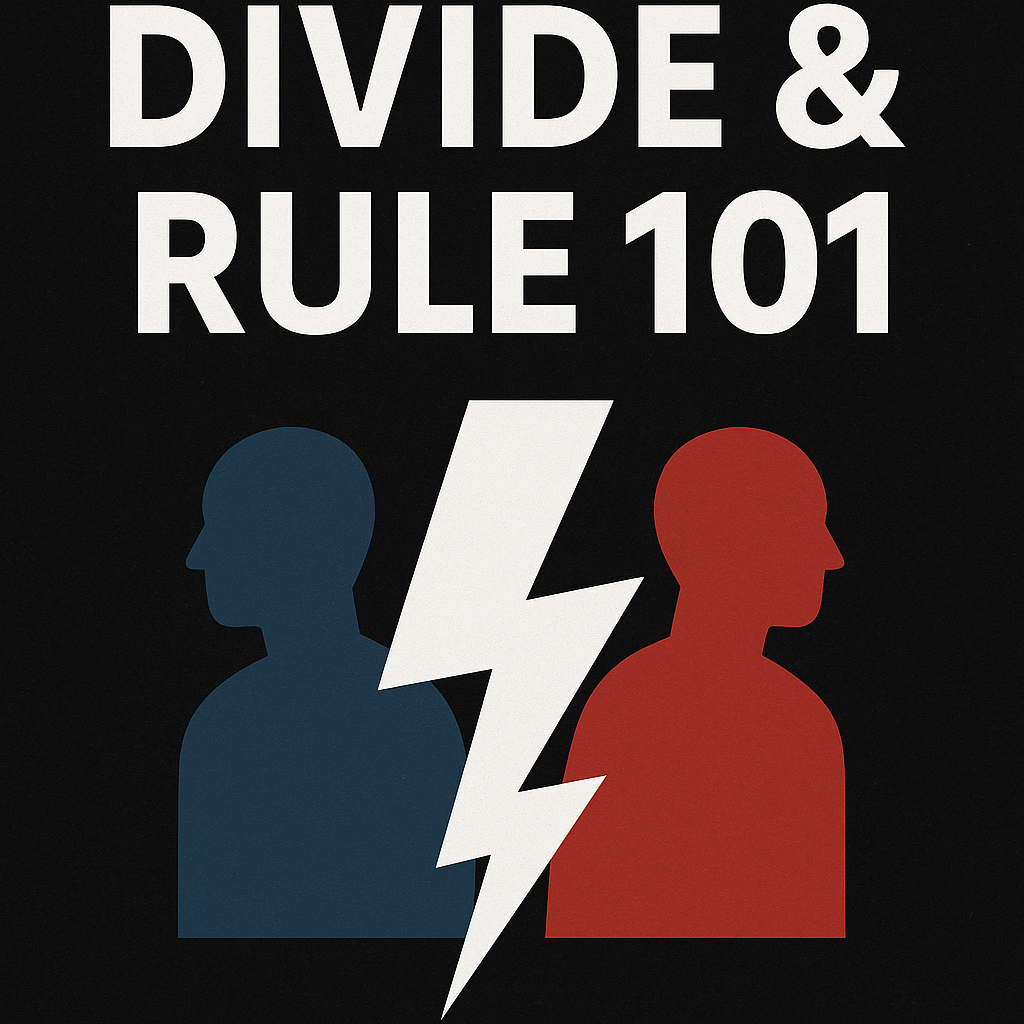Many today view the Bible merely as the founding text of a religion — Christianity — and stop there. However, a deeper and more careful examination reveals that the Bible was never intended to be about religion in the traditional sense. Instead, it teaches a way of life, a culture, and a divine standard of how individuals should treat themselves, others, and their Creator.
The Original Intent: A Covenant, Not a Religion
The Bible presents the story of God’s covenant with humanity — beginning with Adam, renewed through Noah, expanded through Abraham, fulfilled through Moses, and ultimately completed through Jesus Christ.
This covenant was not designed to create sects, denominations, or man-made traditions.
It was a way of living based on:
- Obedience
- Love
- Mercy
- Justice
- Humility
- Personal Transformation
God didn’t call for empty rituals; He called people to walk in His ways — to be holy, to be just, and to care for others.
(See Micah 6:8: “He has shown you, O man, what is good; and what does the Lord require of you but to act justly, love mercy, and to walk humbly with your God?”)
A Higher Culture: Treating Others as Divine Image-Bearers
At the heart of the Bible is the command to treat others with dignity and respect — not because of social status, wealth, or race, but because every person is created in the image of God (Genesis 1:27).
Key principles in this divine way of life include:
- Love your neighbor as yourself (Leviticus 19:18; Matthew 22:39)
- Forgive others as you have been forgiven (Matthew 6:14)
- Serve rather than be served (Mark 10:45)
- Lift the oppressed and care for the vulnerable (Isaiah 1:17)
The Bible sets a counter-cultural standard that does not rely on human governments or social movements but on the hearts of individuals willingly living out God’s truth.
Jesus’ Message: “The Way”
In the New Testament, Jesus didn’t come to establish a new religion; He came to show The Way to eternal life and abundant living now.
- “I am the way, the truth, and the life.” (John 14:6)
His disciples were known not as “Christians” initially but as followers of The Way (Acts 9:2).
Jesus modeled a way of life based on:
- Unselfish love
- Radical forgiveness
- Personal responsibility
- Spiritual transformation
His teachings centered on inward change — from pride to humility, hatred to love, greed to generosity.
The Golden Rule: The Summation of Biblical Culture
Jesus summarized the entire law and prophets into what is often called the Golden Rule:
“So in everything, do to others what you would have them do to you, for this sums up the Law and the Prophets.” (Matthew 7:12)
The Golden Rule wasn’t about religious adherence; it was about living daily life with intentional compassion, justice, and mercy.
The Bible’s Vision for Humanity: Kingdom Culture
Ultimately, the Bible points to a future where God’s way will become the culture of the entire earth — a Kingdom Culture based on His righteousness and justice.
When people live according to The Way:
- Families are healed.
- Communities thrive.
- Nations prosper.
- Hearts find peace.
It’s not religion for religion’s sake.
It’s relationship over ritual.
It’s principle over personality.
It’s eternal truth over fleeting trends.
Living The Way
The Bible teaches that God’s way is not just about Sunday worship or religious labels.
It is about cultivating a life of integrity, love, and divine purpose every day.
It is about becoming a walking reflection of God’s justice, mercy, and truth in a broken world.
We are called not to build religious empires, but to walk The Way — the ancient, timeless path that transforms not only ourselves but also the world around us.
As Jeremiah 6:16 says:
“This is what the Lord says: ‘Stand at the crossroads and look; ask for the ancient paths, ask where the good way is, and walk in it, and you will find rest for your souls.'”
The Bible: Not a Religion, but a Way of Life
Many misunderstand the Bible as merely the foundation of “religion.” In reality, the Bible presents something far deeper and more transformative: a complete way of life. It teaches a holistic culture centered on the highest ideals of truth, love, justice, discipline, mercy, and personal responsibility. It outlines how we are to treat ourselves, each other, and God — not in the cold formality of ritual but in the living fabric of daily relationships and choices.
A Culture of Holiness and Integrity
From Genesis to Revelation, the Bible emphasizes living set apart — with character, integrity, and respect for life. It prescribes fairness in commerce (Leviticus 19:35–36), respect for the poor (Deuteronomy 15:11), justice in law (Exodus 23:6), and purity in personal conduct (Matthew 5–7).
Key Idea:
The Bible shapes a culture where individuals live with a sense of sacred duty, not because of compulsion but because of inner transformation.
Relationship-Centered Living
Unlike religious systems focused purely on rituals, the Bible is relational.
- Love for God is shown through obedience (John 14:15).
- Love for others is central (Matthew 22:37–40).
- Forgiveness, patience, and kindness are mandated virtues, not optional extras.
“By this everyone will know that you are my disciples, if you love one another.” — John 13:35
Relationships are meant to reflect God’s nature — nurturing, truthful, sacrificial, and merciful.
Principles Over Rituals
While the Old Testament contains laws and ordinances, Jesus clarified that the spirit behind the law was always principled living:
- Mercy over sacrifice (Hosea 6:6; Matthew 9:13).
- Spirit over letter (2 Corinthians 3:6).
- Transformation over tradition (Mark 7:8–9).
True worship, Christ taught, is “in spirit and in truth” (John 4:24), not confined to location, ceremony, or outward appearance.
Personal and Communal Growth
The Bible fosters personal excellence through wisdom (Proverbs), emotional maturity through the Psalms, and communal thriving through covenant living.
It is a manual for personal responsibility, encouraging stewardship, critical thinking, perseverance, and humility.
It opposes selfishness, laziness, entitlement, and exploitation — vices that destroy cultures.
A Higher Way: The Way of Christ
Jesus’ call was not to a new religion but to a “Way” (John 14:6; Acts 9:2):
“I am the Way, the Truth, and the Life.”
Following Jesus meant living differently — transcending political, tribal, or legalistic divisions, and embodying the kingdom of God on earth.
Thus, being “Christian” was originally known as walking “The Way” — a living testament of light in a dark world.
Summary
- The Bible teaches a way of being, not mere religious adherence.
- It forms a culture based on principles, not rituals.
- Its goal is to transform individuals and communities through love, truth, justice, mercy, and responsibility.
- Living “The Way” is embodying the divine character here and now.






